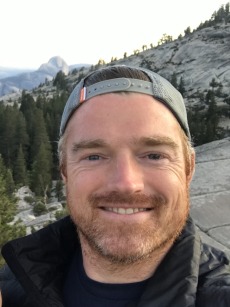
James Hanna provided field and clinical emergency medical training for Army Reservists during his internship with the U.S. Department of Defense.
Why did you choose this internship?
This internship allowed me to combine my passions for teaching and emergency medicine into one program; where in I could use my liberal arts acquired insights, as well as my military background, to take a critical approach to an existing program. Thereby, the experience allowed me to grow personally, and professionally, and gave me the unique opportunity to propose potential improvements to a Department of Defense program.
Through the experience, I was first and foremost able to hone my existing medical skill sets by reviewing, practicing, and then teaching various protocols and procedures. Secondary to that, I was able to develop my teaching and instructing ability via the inherent need to distill complex ideas and processes, into quickly understandable and immediately actionable formats. Finally, I was able to develop an enhanced working knowledge of governmental programs, to include skill sets in: finance management, personnel policies, and logistics.
The internship reaffirmed my passion for professional medicine, and further heightened my desire to serve in military medicine. Furthermore, I have discovered a greater passion for teaching and instructing than I was previously aware of. In light of that realization, I will seek to be as much a teacher, as I already am a student, going forth in an effort to “pay forward” all that I learn in my own studies.
How was the internship related to your Applied Humanities degree?
The Applied Humanities program allowed me to take a more informed, critical approach to existing paradigms within the emergency medicine program, thus asking “why” frequently, and then using critical analysis to propose improvements from a more informed background which was gained through my studies. Furthermore, the role of the Combat Medic (the population I was working with in this program) is not only that of a warfighter and emergency medical practitioner, but also that of a humanitarian. Their interactions with Indigenous populations abroad, and varying populations domestically, make their interpersonal and humanistic skill sets vital aspects of their scope of practice. Thus, my Applied Humanities work helped me to bring further knowledge and tools to use, in this realm, to the course work and program of training.
What advice do you have for other students as they search for or begin their internship?
My advice is that students have fun, soak up all the information you can, strive to over prepare and over deliver, but know that you don’t have to know it all, or be great at it all. Setbacks, challenges, and even failure at tasks will be as educational and vital as your successes. Own them, learn from them, and then use them to come back and do better. Also, find something, or somewhere new to you, and thus expand your breadth of experience while engaging in the internship. Or, choose something you thought you were familiar with, and take a newly critical eye to it; quite often the “known” when re-assessed, holds as many new insights as the novel or different.

